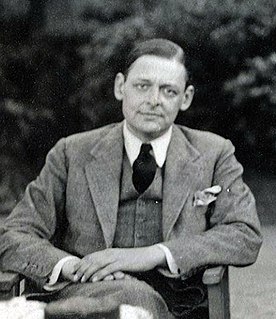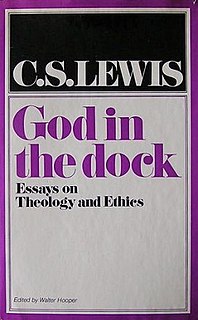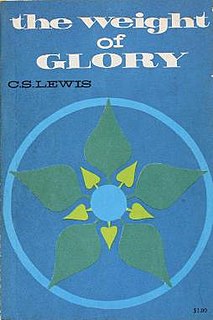
Clive Staples Lewis was a British writer and lay theologian. He held academic positions in English literature at both Oxford University and Cambridge University. He is best known as the author of The Chronicles of Narnia, but he is also noted for his other works of fiction, such as The Screwtape Letters and The Space Trilogy, and for his non-fiction Christian apologetics, including Mere Christianity, Miracles, and The Problem of Pain.

Charles Walter Stansby Williams was a British poet, novelist, playwright, theologian, literary critic, and member of the Inklings, an informal literary discussion group associated with C. S. Lewis and J. R. R. Tolkien at the University of Oxford.

John Hoyer Updike was an American novelist, poet, short-story writer, art critic, and literary critic. One of only four writers to win the Pulitzer Prize for Fiction more than once, Updike published more than twenty novels, more than a dozen short-story collections, as well as poetry, art and literary criticism and children's books during his career.

Thomas Stearns Eliot was a poet, essayist, publisher, playwright, literary critic and editor. Considered one of the 20th century's major poets, he is a central figure in English-language Modernist poetry.

Literary criticism is the study, evaluation, and interpretation of literature. Modern literary criticism is often influenced by literary theory, which is the philosophical discussion of literature's goals and methods. Though the two activities are closely related, literary critics are not always, and have not always been, theorists.

Herman Northrop Frye was a Canadian literary critic and literary theorist, considered one of the most influential of the 20th century.

Percy Wyndham Lewis was a British writer, painter and critic. He was a co-founder of the Vorticist movement in art and edited BLAST, the literary magazine of the Vorticists.

James Russell Lowell was an American Romantic poet, critic, editor, and diplomat. He is associated with the fireside poets, a group of New England writers who were among the first American poets that rivaled the popularity of British poets. These writers usually used conventional forms and meters in their poetry, making them suitable for families entertaining at their fireside.

Oliver Wendell Holmes was an American physician, poet, and polymath based in Boston. Grouped among the fireside poets, he was acclaimed by his peers as one of the best writers of the day. His most famous prose works are the "Breakfast-Table" series, which began with The Autocrat of the Breakfast-Table (1858). He was also an important medical reformer. In addition to his work as an author and poet, Holmes also served as a physician, professor, lecturer and inventor and, although he never practiced it, he received formal training in law.

Lives of the Most Eminent English Poets (1779–81), alternatively known by the shorter title Lives of the Poets, is a work by Samuel Johnson comprising short biographies and critical appraisals of 52 poets, most of whom lived during the eighteenth century. These were arranged, approximately, by date of death.
Frank Stuart Flint was an English poet and translator who was a prominent member of the Imagist group. Ford Madox Ford called him "one of the greatest men and one of the beautiful spirits of the country".

Abraham Moses Klein was a Canadian poet, journalist, novelist, short story writer and lawyer. He has been called "one of Canada's greatest poets and a leading figure in Jewish-Canadian culture."
Emanuel Oscar Menahem Deutsch was a German Jewish scholar of Semitic studies, the Talmud and Middle Eastern studies.
Eustace Mandeville Wetenhall Tillyard was an English classical and literary scholar who was Master of Jesus College, Cambridge from 1945 to 1959.

God in the Dock is a collection of previously unpublished essays and speeches from C. S. Lewis, collected from many sources after his death. Its title implies "God on Trial" and the title is based on an analogy made by Lewis suggesting that modern human beings, rather than seeing themselves as standing before God in judgement, prefer to place God on trial while acting as his judge.
Anthony Edward Dyson, aka Tony Dyson was a British literary critic, university lecturer, educational activist and gay rights campaigner.
Ervin Hatibi, Albanian poet, essayist and painter. Hatibi was born in Tirana, Albania, on May 31, 1974. At the age of 14, Hatibi published his first poems in the literary pages of the main newspapers of the epoch. His first poetry collection Përditë Shoh Qiellin, Naim Frashëri, Tirana prefaced by Ismail Kadare, was published in 1989 when he was only 15 and was widely acclaimed by the critics of the communist regime. At that time, following the sudden fame of the young author and his grooming as future national poet of the communist state, the National Film Studios of Albania "Shqiperia e Re", produced a documentary film on his works, entitled "The 15 Year Old Poet".

The Weight of Glory and Other Addresses is a collection of essays and addresses on Christianity by C.S. Lewis. It was first published as a single transcribed sermon, "The Weight of Glory" in 1941, appearing in the British journal, Theology, then in pamphlet form in 1942 by Society for Promoting Christian Knowledge, London. It was published in book form in 1949, as a compilation of five addresses, in London by Geoffrey Bles under the title Transposition and Other Addresses and in the U.S. by The MacMillan Company under the title The Weight of Glory and Other Addresses. A revised and expanded edition featuring four additional essays and an Introduction by Walter Hooper was published by Macmillan Publishers in 1980.
Erich Heller was a British essayist, known particularly for his critical studies in German-language philosophy and literature of the nineteenth and twentieth centuries.
This is a list of writings by C. S. Lewis.













